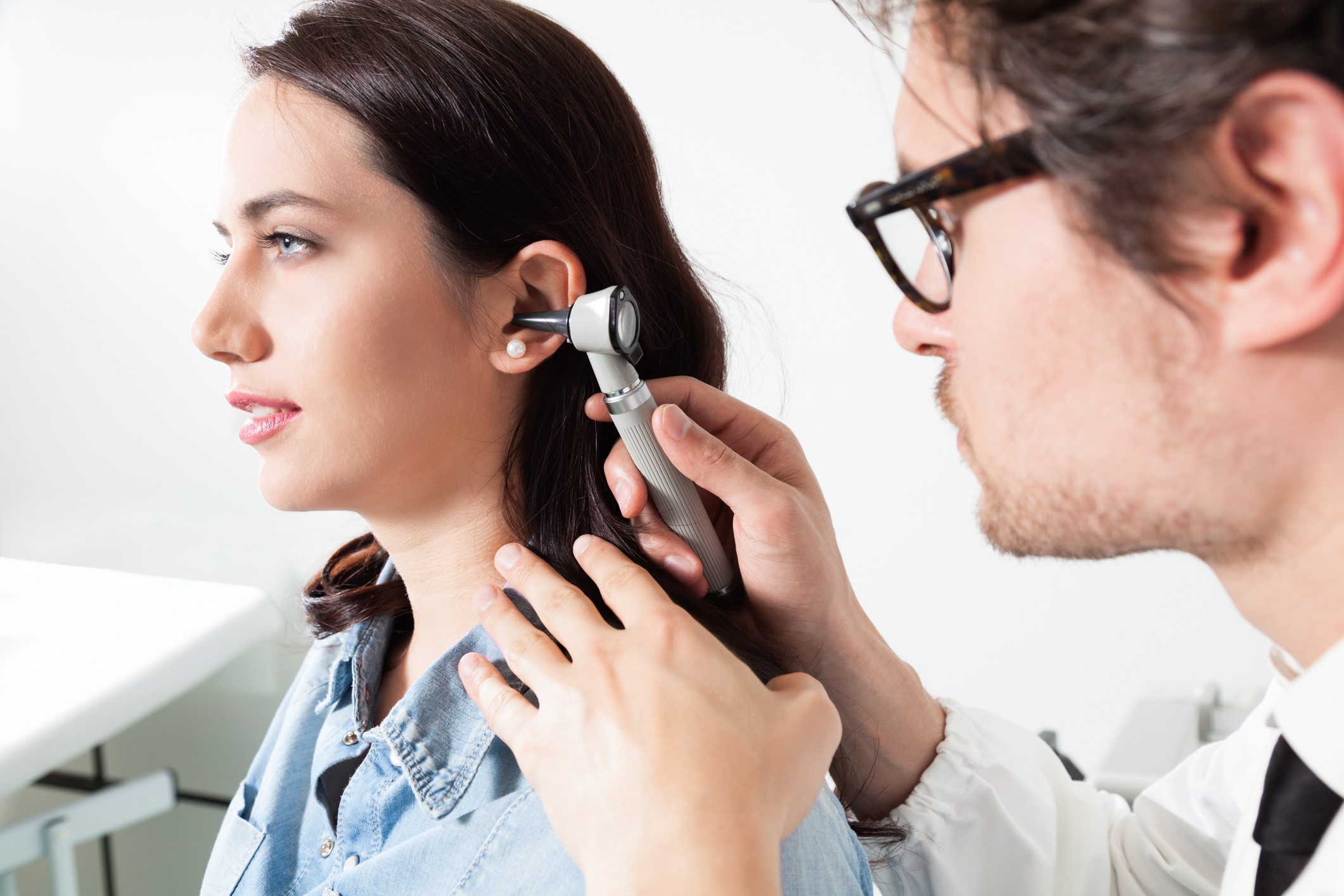
Inner ear disorders: Meniere's syndrome or disease
Meniere’s syndrome is a disease of the labyrinth, i.e. the inner ear, first described by the Parisian physician Prospero Menière in 1861 and characterised by three disorders: hearing loss (hypoacusis), buzzing (tinnitus) and vertigo crisis
Characteristic symptoms of Meniere’s syndrome
The patient with Meniere’s syndrome, a rare disease that varies greatly in its course, presents with hearing disorders in only one ear and severe vertiginous crises.
The latter have a sudden onset and are often accompanied by nausea, vomiting and an inability to stand and walk, last from 20 minutes to 6-7 hours and may recur in an irregular and unpredictable manner.
The auditory disturbances that characterise the disease – hearing loss, tinnitus and sensation of a muffled ear (fullness) – fluctuate and worsen during vertigo crises.
In the advanced stage, vertigo crises reduce in frequency and intensity and are replaced by persistent instability.
Hearing stabilises at a medium to severe loss on all frequencies.
In some women, symptoms are linked to the hormonal situation, so they may be acute in the premenstrual phase or at the beginning of the menopause and decrease in intensity during pregnancy.
Many patients with Menière’s syndrome suffer from migraine headache and there is a correlation between the two disorders that can manifest itself in an intermediate picture known as vestibular migraine or migraine vertigo.
In rare cases, the syndrome can affect both ears (bilateral Menière) and in this case it appears to be due to disorders of the immune system.
One factor that can have an important influence is stress, as well as lifestyle and diet.
Causes of Meniere’s syndrome
Meniere’s syndrome is due to increased pressure of the endolymph, the fluid contained in the membranous labyrinth spaces of the inner ear.
What results is a dilatation of these spaces known as endolymphatic hydrops.
The factors responsible for these increases in endolymph pressure are many and partly unknown, probably varying from patient to patient.
Diagnosis of Meniere’s syndrome
Since it is a “niche disease”, with variable and unpredictable disorders, it is essential for a correct diagnosis to first reconstruct the patient’s clinical history through the anamnesis.
In addition to meticulous gathering of information on the clinical manifestations, audiometric and vestibular examinations are carried out.
According to international criteria, a diagnosis of certainty of Meniere’s syndrome requires at least one audiometric examination with a unilateral sensorineural hearing loss with low and medium frequencies.
If it is thought that the symptoms of Meniere’s syndrome may be related to a rarer pathology such as neurinoma of the auditory nerve, the specialist may request an MRI with contrast medium of the ponto-cerebellar angle and the inner auditory canal.
Treatment and therapies for Meniere’s syndrome
In the treatment of Meniere’s syndrome, vestibulosuppressant drugs are used during acute episodes to reduce vertigo, nausea and vomiting.
To avoid and prevent vertiginous crises, a diet low in salt but rich in water and the use of diuretics are recommended.
In resistant cases, treatment with intratympanic injections (into the middle ear through the tympanic membrane) of cortisone or gentamicin is proposed.
In particular, intratympanic gentamicin at reduced dosages and repeated over time as needed ensures control of vertiginous crises in 90% of cases, without significant side effects.
In the event of frequent and disabling vertiginous crises that are not controlled by drugs, and that can seriously compromise the patient’s quality of life, it may be necessary to resort to ‘ablative’ treatments that eliminate or reduce the function of the diseased labyrinth: labyrinthectomy (removal of the labyrinth), neurectomy (section of the vestibular nerve), decompression of the endolymphatic sac.
Read Also:
Emergency Live Even More…Live: Download The New Free App Of Your Newspaper For IOS And Android
Benign Paroxysmal Positional Vertigo (BPPV): Causes, Symptoms And Treatment
Headaches And Dizziness: It Could Be Vestibular Migraine
Migraine And Tension-Type Headache: How To Distinguish Between Them?
First Aid: Distinguishing The Causes Of Dizziness, Knowing The Associated Pathologies
Cervical Dizziness: How To Calm It Down With 7 Exercises
Paroxysmal Positional Vertigo (BPPV), What Is It?
First Aid: The Causes And Treatment Of Confusion
Benign Paroxysmal Positional Vertigo (BPPV): Symptoms And Liberating Manoeuvres To Cure It


